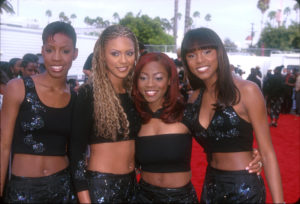
Mathew Knowles was inspired by his upbringing in Alabama to write his second book, (Photo by Johnny Nunez/WireImage)
Mathew Knowles made headlines earlier this year when his remarks about how colorism influenced his dating life took the spotlight away from his true message. But he’s making sure to get it out now.
In February, a statement about how he initially linked up with Tina Knowles-Lawson took all focus off of his memoir.
“I actually thought when I met Tina, my former wife, that she was white,” he told Ebony in February. “Later I found out that she wasn’t, and she was actually very much in-tune with her blackness. I had been conditioned from childhood.”
But by March, while continuing the rounds to promote his new book, “Racism: From The Eyes Of A Child,” he told Atlanta Black Star, that colorism is something that was imposed on Black Americans during slavery.
“And colorism, for me, isn’t just in the Black community,” he says. “Colorism is the whole world. I mean, in Mexico, you see the darker shade [of] Mexicans, you know, those are the persons in the fields. … Colorism is all around. You go to Nigeria, you’ll see the African women, a number of them are bleaching their skin.”
Knowles, who explained colorism has long been tied to the perception of money, power and control, said colorism also affected him personally. Speaking on the Ebony comment where he said, “my mother used to say, ‘Don’t ever bring no nappy-head Black girl to my house,” the music manager said it had influenced his behavior and decisions.
“When you’re a child and you internalize something, it affects you,” he said. “It affects your decision making and how you think. In the book, I talk about how in high school I dated primarily white girls.”
He also clarified the story of when he met Knowles-Lawson and mistook her for a white woman.
“When I first met my former wife … it was merely at one party that I saw this woman and I actually thought she was white,” he said. “And so, when I approached her, I approached her from a perspective that I thought she was white, not Black. But shortly after I met her at the party, I realized talking with her that she was, in fact, Black.”
He added that throughout college, he continued to date white women, but later worked through internalized colorism in therapy.
But during his first two years at the Univerity of Tennessee at Chattanooga, when the school became desegregated, he had kept up with his typical dating habits. Doing so led him to transfer to Fisk University, a historically Black university when he was caught in his dorm room with a white woman during a school break. “The coach wanted to expel me at first but decided not to, and that’s why I had to transfer, it wasn’t because I wanted to, it’s because I was in my dorm room when school was out with a white girl.”
Knowles said attending Fisk marked the first time he attended a Black school. During that time, he said, it was the last year the brown paper bag test was used for admissions. There were a couple of exceptions, however. One was if you had a family member who donated a significant amount of money and the other was his exclusion: he was an athlete.
Still, he said he valued his experience at Fisk more than UT, coming from a household that didn’t allow him to go to Black parties, where he said he was considered an “Oreo,” and “no white people invited me to parties.”
As the Texas Southern University professor continued to work through his issues with colorism, he admitted it didn’t play a role when he established one of the most successful girl groups of all time, Destiny’s Child. Instead, he said it was all about demographics.
“When we look in America, there’s about 240 million white folks and there’s about 40 million Black folks and there’s about 60 million … Hispanics,” he said. “So, from a pure business perspective, I had to look at the numbers and understand them. And understand who is my audience and how could I get all of the audience — including the white audience.”
He added that he realized at Columbia and Sony Records that there was an uphill battle to get DC played on pop radio because of the segregation within the labels.
And while DC lead and older daughter Beyoncé sorted through racism while making her way in the industry, her younger sister had to deal with their dad’s colorism. While speaking to Billboard magazine, Solange said she worked through her teen and early adulthood issues with him, mentioning how his past experience affected her.
“I think I have a much clearer idea of the trauma that he experienced and how it felt like it was then generationally passed on to me,” she said. “Both kind of existing in the white spaces as an ‘only,’ and how much that can really shape and mold your experience of the world, race, and identity.”
“Solange, [“A Seat at the Table”] was genius,” he says in response to her remarks on existing in a white space. “Through the songs and the skits. Master P did an exceptional job MCing the whole thing. If you listen to some of the songs, Solange is saying exactly — she has a song where she gets to the gate where she lives, she’s got to go through this whole thing and prove she lives there. And that’s [the experience of] a lot of Black folks in America.”
And with his new book, Knowles says he wants to foster a global dialogue among the Black community about racism and colorism.
“Racism: From The Eyes Of A Child” is available now.


